Filter by
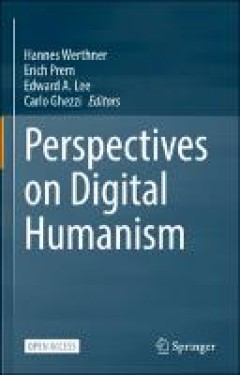
Perspectives on digital humanism
This open access book aims to set an agenda for research and action in the field of Digital Humanism through short essays written by selected thinkers from a variety of disciplines, including computer science, philosophy, education, law, economics, history, anthropology, political science, and sociology. This initiative emerged from the Vienna Manifesto on Digital Humanism and the associated le…
- Edition
- -
- ISBN/ISSN
- 9783030861445
- Collation
- xviii, 342 p. : ill.
- Series Title
- -
- Call Number
- 004 WER p

Big and little histories : sizing up ethics in historiography
This book introduces students to ethics in historiography through an exploration of how historians in different times and places have explained how history ought to be written and how those views relate to different understandings of ethics. No two histories are the same. The book argues that this is a good thing because the differences between histories are largely a matter of ethics. Looking …
- Edition
- -
- ISBN/ISSN
- 9780429399992
- Collation
- XI, 209 p.
- Series Title
- -
- Call Number
- 174.99072 HUG b
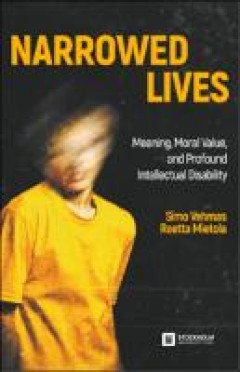
Narrowed lives : meaning, moral value and profound intellectual disability
What is day-to-day life like for people with profound intellectual and multiple disabilities who live in group homes? How do they express their desires and wishes? How do care workers think about them and treat them? Do they have basic rights to activities most of us take for granted: activities like sociability, sexuality, and moral affirmation? Narrowed Lives is an illuminating portrait of wh…
- Edition
- -
- ISBN/ISSN
- 9789176351482
- Collation
- xxii, 252p.:
- Series Title
- -
- Call Number
- 362.41092 VEH n
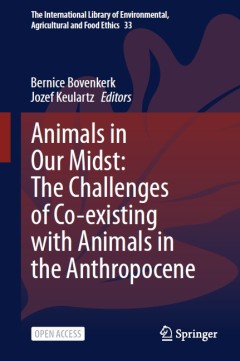
Animals in our midst : the challenges of co-existing with animals in the anth…
This Open Access book brings together authoritative voices in animal and environmental ethics, who address the many different facets of changing human-animal relationships in the Anthropocene. As we are living in complex times, the issue of how to establish meaningful relationships with other animals under Anthropocene conditions needs to be approached from a multitude of angles. This book offe…
- Edition
- -
- ISBN/ISSN
- 9783030635237
- Collation
- xiii, 579p. : ill.
- Series Title
- -
- Call Number
- 179.3 ANI a
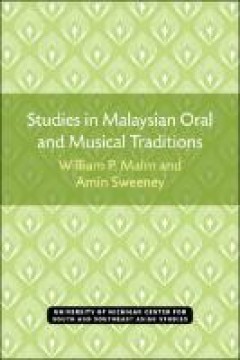
Studies in Malaysian oral and musical traditions
The first of two studies included is “Music in Kelantan, Malaysia and Some of Its Cultural Implications,” by William P. Malm. Kelantan is the northernmost province on the east coast of Malaysia. It is considered to be the most orthodox area in a nation whose state religion is Islam. At the same time it must be noted that it borders to the north with the Buddhist country of Thailand and to t…
- Edition
- -
- ISBN/ISSN
- 9780472902286
- Collation
- 99 p.
- Series Title
- Michigan Papers On South And Southeast Asia
- Call Number
- 781.75951 MAL s
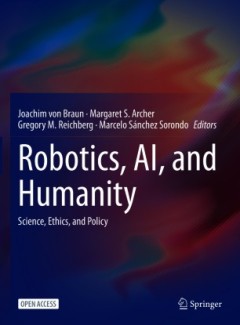
Robotics, AI, and humanity : science, ethics, and policy
This open access book examines recent advances in how artificial intelligence (AI) and robotics have elicited widespread debate over their benefits and drawbacks for humanity. The emergent technologies have for instance implications within medicine and health care, employment, transport, manufacturing, agriculture, and armed conflict. While there has been considerable attention devoted to robot…
- Edition
- -
- ISBN/ISSN
- 9783030541736
- Collation
- x, 269p. : ill.
- Series Title
- -
- Call Number
- 174.9629892 ROB r
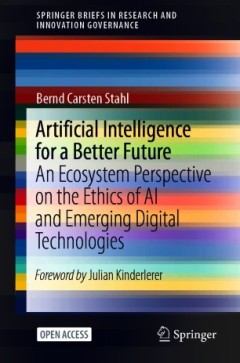
Artificial intelligence for a better future : an ecosystem perspective on the…
This open access book proposes a novel approach to Artificial Intelligence (AI) ethics. AI offers many advantages: better and faster medical diagnoses, improved business processes and efficiency, and the automation of boring work. But undesirable and ethically problematic consequences are possible too: biases and discrimination, breaches of privacy and security, and societal distortions such as…
- Edition
- -
- ISBN/ISSN
- 9783030699789
- Collation
- x, 124p. : ill.
- Series Title
- -
- Call Number
- 174.90063 STA a
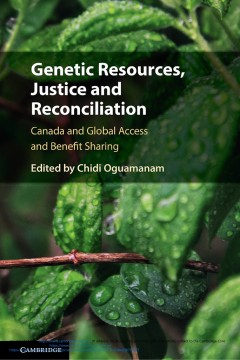
Genetic resources, justice and reconciliation : Canada and global access and …
When the oral history of a medicinal plant as a genetic resource is used to develop a blockbuster drug, how is the contribution of indigenous peoples recognized in research and commercialization? What other ethical, legal, and policy issues come into play? Is it accurate for countries to self-identify as users or providers of genetic resources? This edited collection, which focuses on Canada, i…
- Edition
- -
- ISBN/ISSN
- 9781108557122
- Collation
- xix, 279p. : ill.
- Series Title
- -
- Call Number
- 346.710469534 GEN g
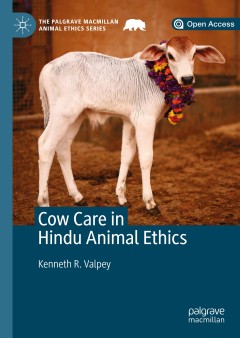
Cow care in Hindu animal ethics
This open access book provides both a broad perspective and a focused examination of cow care as a subject of widespread ethical concern in India, and increasingly in other parts of the world. In the face of what has persisted as a highly charged political issue over cow protection in India, intellectual space must be made to bring the wealth of Indian traditional ethical discourse to bear on t…
- Edition
- -
- ISBN/ISSN
- 9783030284084
- Collation
- xxx, 269p. : ill.
- Series Title
- -
- Call Number
- 179.3 VAL c
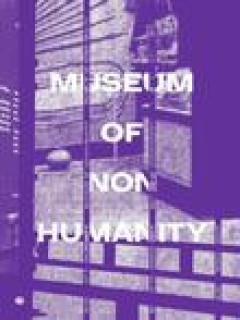
Museum of nonhumanity
Museum of Nonhumanity is the catalogue for a full-size touring museum that presents the history of the distinction between humans and animals, and the way that this artificial boundary has been used to oppress human and nonhuman beings over long historical periods. Throughout history, declaring a group to be nonhuman or subhuman has been an effective tool for justifying slavery, oppression, med…
- Edition
- 1st edition.
- ISBN/ISSN
- 9781950192120
- Collation
- 281p.:
- Series Title
- -
- Call Number
- B105.A55 GUS m
 Computer Science, Information & General Works
Computer Science, Information & General Works  Philosophy & Psychology
Philosophy & Psychology  Religion
Religion  Social Sciences
Social Sciences  Language
Language  Pure Science
Pure Science  Applied Sciences
Applied Sciences  Art & Recreation
Art & Recreation  Literature
Literature  History & Geography
History & Geography